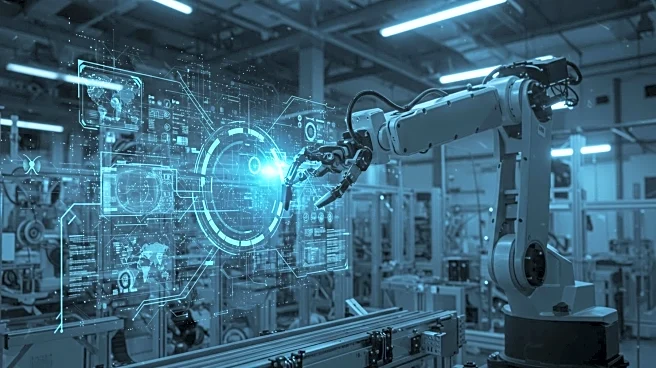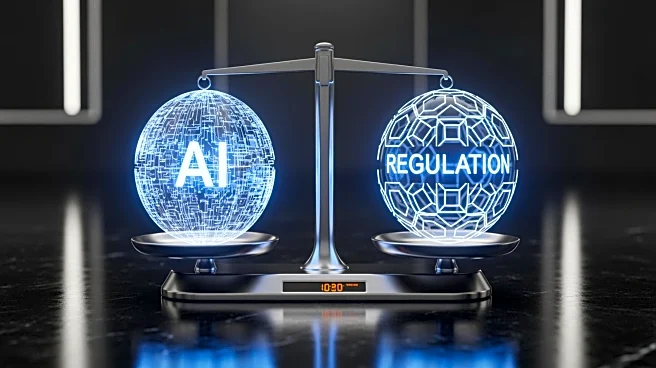What is the story about?
What's Happening?
The manufacturing sector is undergoing a significant digital transformation, with a growing emphasis on smart manufacturing initiatives. According to Rockwell Automation's 10th Annual State of Smart Manufacturing Report, 56% of manufacturers are piloting smart manufacturing projects, while 20% have deployed them at scale. The report highlights a shift in focus from energy costs to cybersecurity risks, competition, and workforce challenges. Manufacturers are increasingly integrating AI and machine learning (ML) to enhance quality control and cybersecurity, with 50% planning to implement these technologies within the next year. The demand for skilled workers in AI and cybersecurity is rising as companies seek to optimize processes and improve resilience against external threats.
Why It's Important?
The shift towards smart manufacturing is crucial for the industry's future, as it addresses key challenges such as labor shortages and cybersecurity threats. By leveraging AI and ML, manufacturers can automate processes, reduce manual work, and enhance productivity, allowing skilled workers to focus on higher-value tasks. This transformation is expected to improve operational resilience and return on investment, making it a strategic priority for many companies. The demand for AI and cybersecurity skills highlights the need for workforce development in these areas, which could influence educational and training programs. As manufacturers continue to adopt these technologies, they may gain a competitive edge in the global market.
What's Next?
Manufacturers are expected to continue investing in AI and cybersecurity technologies to address workforce challenges and external risks. Over the next five years, the most important workforce skills will likely include AI knowledge, cybersecurity expertise, and strong problem-solving abilities. Companies may also focus on optimizing supply chains and leveraging data analytics to monitor risks and improve decision-making. As AI use grows, the potential for cyberattacks increases, prompting manufacturers to strengthen their security measures. The industry may see a rise in partnerships with technology providers to enhance smart manufacturing capabilities and ensure data security.
Beyond the Headlines
The integration of AI and cybersecurity in manufacturing not only addresses immediate operational challenges but also raises ethical and legal considerations. As companies collect and utilize vast amounts of data, issues related to data privacy and compliance may become more prominent. Additionally, the reliance on AI for decision-making could lead to debates about the role of human oversight and accountability in automated processes. The shift towards smart manufacturing may also influence cultural perceptions of the industry, as it transitions from traditional methods to more technologically advanced practices.


















